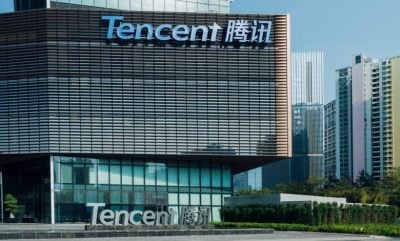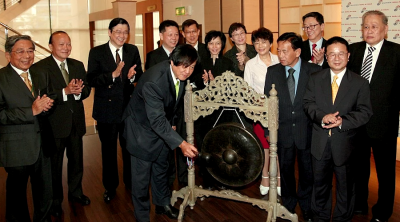
With South Korean schools set to shift to AI-driven digital textbooks in schools in 2025, Stephen M. Kosslyn, a former Harvard University dean of social science, believes the switch can cool off the country’s private education market, and competition for medical school places.
He says it is an opportunity to resolve the over-concentration of talent in a narrow set of fields and colleges. AI learning models can help students find their purpose, he says gradually reducing reliance on the private sector.
According to Kosslyn, it is time to shrug off the belief that education should be done through traditional learning methods. Intelligent classrooms can enable students to learn knowledge at their own pace, circumventing the need to compete for places at prestigious colleges or to become doctors.
“I don’t know if parents are going to need to send their children to private education (anymore). (In classes using AI learning tools), students no longer compete with anybody, so there’s no cutthroat (competition),” Kosslyn told The Korea Herald on Tuesday.
Whenever there is a limited resource that a lot of people want, there will be competition. But once some students explore other paths, the competition for med school and top universities will decrease, according to Kosslyn, because other students will also change.
Kosslyn highlighted Taejae University–a new type of online university modeled on the US’ Minerva University–as potentially leading the trend.
Taejae students have a year of general education before declaring a major. Students must spend each semester in a different country and classes are in English, and emphasize interactive thinking and participation.
“If the (Taejae) model works out well, it will be worth paying attention to, because it will demonstrate that new results produce better results,” he said.
Kosslyn said students should engage in active learning to make knowledge relevant and shape their lives and goals rather than resorting to private education in the pursuit of better test scores or more competitive medical school applications.
“AI can have every student interact one-on-one and see how good a student is. Why send children to private academies and not have them interact with an AI or have friends come over and learn with the AI as a team, which is also a social component helping them be members of society?”
“The advantages of the traditional learning method are real, but I don’t think they’re limited to that anymore. Students can get the same advantages for things like critical thinking and creative thinking using AI,” Kosslyn said.
Once parents start to see their children learn and gain knowledge, Kosslyn added, they’ll be “delighted” and “see no room for private education.”
“(AI) is not just a calculator or an encyclopedia where you can look things up. What it really is good at is critical thinking and creative thinking only when students know what to ask, so we have to help the kids learn AI learning tools better and make sure to be clear on their learning objectives,” he said.
Kosslyn noted that memorization was not a true gauge of student intelligence. He said classrooms and teachers should move on from passive learning — where teachers pass information to students for them to memorize — to nurturing students’ thinking skills through discussions and other activities.
When teaching a topic on negotiation techniques, for example, a teacher could review the techniques and have students do a role-playing game where each role has different needs.
“This process requires you to use the strategies you are taught. (Teachers) can teach new concepts and facts through a context where students use them, not through a test and see how much they know,” he explained.
Also, Kosslyn suggests Korean schools adopt competency-based education, which requires students to display a certain amount of competency or ability to do something.
“Students can do an exercise after they start learning or take it five times if they have trouble. The point is that students are ready to move on whenever they cross that threshold by demonstrating competency. There are no grades,” he said, adding that it would change the education-results-focused culture.
Asked when the digitalized lessons will create a change in Korea’s educational landscape, Kosslyn said the changes will be visible in the next five years, adding that it would pave the way for students to seek out diverse perspectives.
“Students say they wish to get into med school for social status and wealth. But in the age of AI, there’s going to be a lot of jobs that can satisfy that. Why just stick with one type?”

ADVERTISEMENT
ADVERTISEMENT








































